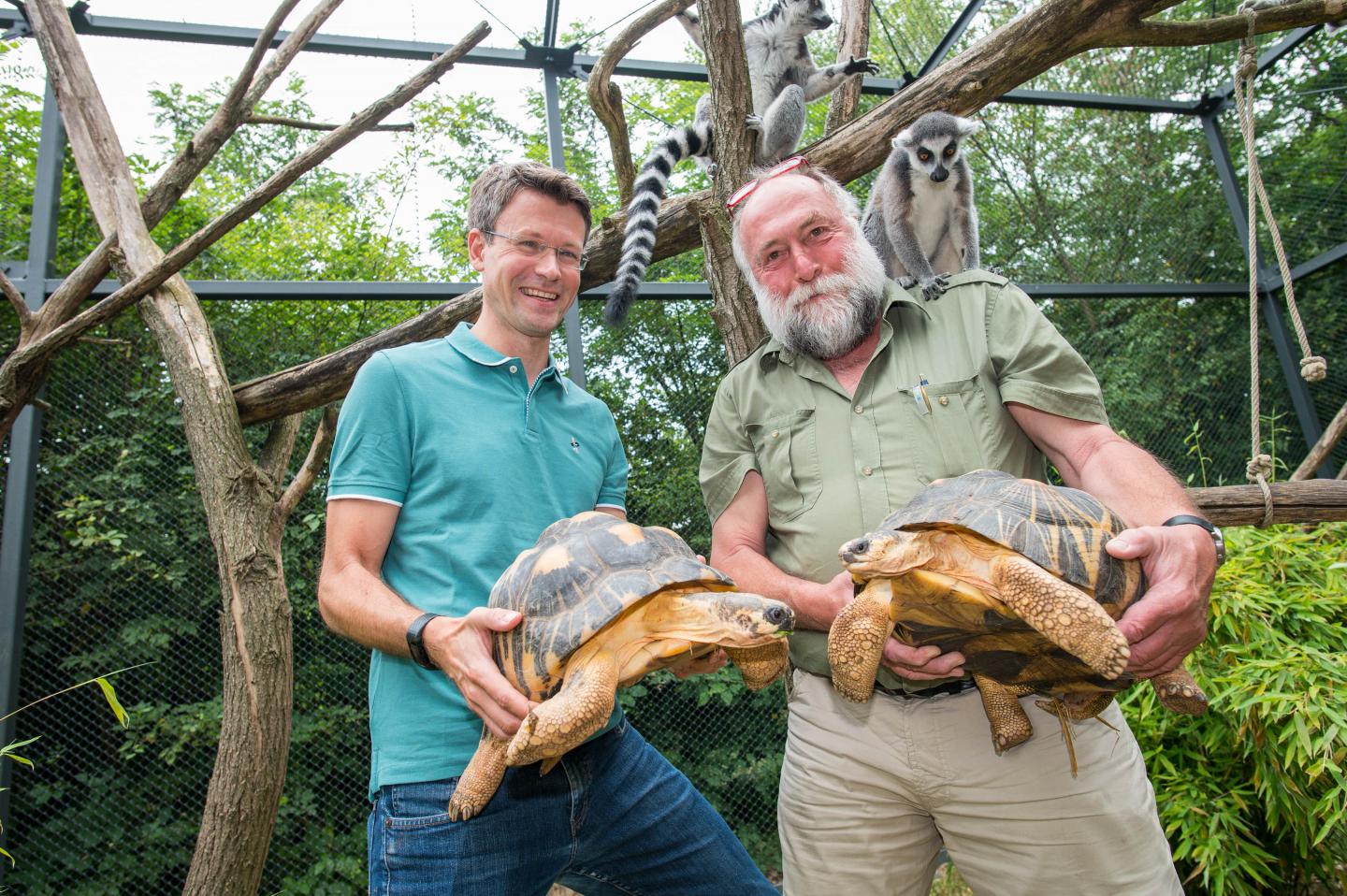
Credit: Oliver Dietze
The researchers want to use similar genetic patterns, which have been present in the blood of humans and animals for thousands of years, to improve computer-assisted disease prognosis.
The research project is unusual for bioinformaticians not only because of the cooperation with the zoo. “Measuring the molecular blood profiles of animals has never been done before in this way,” explains Andreas Keller, bioinformatics professor at Saarland University. Instead of examining tissue and data from human patients, Keller and Eckart Meese, a human geneticist from Saarbrücken, analyzed blood samples from 21 animals. Zoo director Richard Francke had collected the blood during routine examinations between 2016 and 2018 and made it available to the scientists. In fact, these scientists normally investigate biomarkers that occur in human blood in order to identify lung tumors or diseases such as Alzheimer’s and Parkinson’s earlier and better. “Micro-RNAs are well suited for this,” says Andreas Keller.
“These are short sections of specific molecules in ribonucleic acid that play an important role in the control of genes. In order to find these sections, the researchers use modern bioinformatic methods, including machine learning, a method of artificial intelligence. This in turn leads to a challenge in which the animals from the two Saarland zoos can help. “Up to 20 million data points are collected per (human) patient. The machine learning methods recognize the typical patterns, for example for a lung tumor or Alzheimer’s disease. However, it is difficult for artificial intelligence to learn which biomarker patterns are real and which only seem to fit the respective clinical picture.” This is where the blood samples of the animals come into play.
“If a biomarker is evolutionarily conserved, i.e. also occurs in other species in similar form and function, it is much more likely that it is a resilient biomarker,” explains Professor Keller. For this reason, the researchers analyzed the residues from the blood samples taken from the animals. A total of 21 samples were taken from 19 animal species, including a coati and a Humboldt penguin. “The new findings are now being incorporated into our computer models and will help us to identify the correct biomarkers even more precisely in the future,” explains Keller.
The researchers from Saarbrücken have published their results in the renowned journal Nucleic Acids Research. In addition, they have set up a database in which they also enter their current results. So far, scientists have examined the blood of a total of 40 animals, including an anaconda and a kangaroo. Scientists from all over the world now have access to this data. The research project was financially supported by the state government of Saarland.
###
Press picture: http://www.
Questions can be directed to:
Professor Andreas Keller
Chair of Clinical Bioinformatics
Saarland Informatics Campus D3.2
Saarland University
E-mail: [email protected]
Editor:
Gordon Bolduan
Competence Center Computer Science Saarland
Saarland Informatics Campus E1.7
Saarland University
Phone: +49 681 302 70741
E-mail: [email protected]
Media Contact
Gordon Bolduan
[email protected]
Original Source
https:/
Related Journal Article
http://dx.




